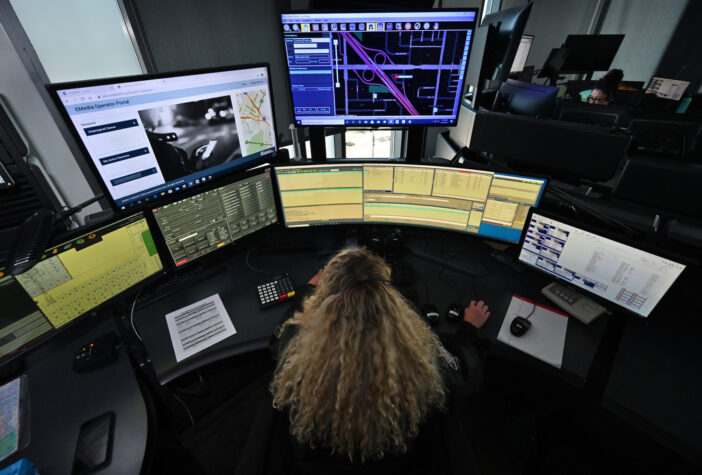When it comes to first responders, dispatchers are often the unsung heroes behind the scenes.
They are the first voice people hear after they dial 9-1-1.
They are the helpers offering a steady voice during a moment of crisis.
Behind the Badge spoke to Bakersfield Police Department Dispatcher Erica Williams, who found this rewarding career when she least expected it. Now, she can’t imagine doing anything else.
How long have you been a dispatcher at Bakersfield PD: 9 ½ years.
How did you find yourself in this career? This was originally supposed to be a stop-gap between jobs. I had earned a degree in Animal Science, and I was looking to start my own breeding ranch. But once I started here, I discovered I was good at it and I enjoyed it. My father suggested the job to me since he is in law enforcement, and I found it to be fulfilling.
What skills are needed to be a successful dispatcher? You have to be able to detach yourself from the situation. You are dealing with people’s emergencies all day, every day and you must be able to remind yourself, “Even though I am handling this, this emergency is not mine.”
The calmer, controlled, and more decisive I am, the easier it is for me to handle the call and be there for the person on the other end of the line.
You do have to have empathy for this job with a healthy dose of multitasking skills. When I’m on a call, I listen to three other people around me, the radio, running to check on someone to see if they have a warrant.
What calls are the hardest for you? Anything involving kids is hard. Adults make their own choices, so whatever situation they are in is because of a choice they made.
I had a little girl who called, she was about three years old, and I was able to get the address based on her cell location and the apartment number because she knew the number on their front door. There was a guy outside trying to break into the house and her mom was holding the door while the little girl called us. We got there, arrested the guy, who was a stranger under the influence trying to break into their house.
It was rough. The calls that get to me are the ones where the person was genuinely not doing anything wrong, and then something happens to them. It can take a while to let those go.
What don’t people know about 9-1-1? About 95 percent of the calls, I get aren’t an emergency.
(We get calls like): My kids are yelling at me. My husband came home drunk. I once had a lady at a park call 9-1-1 to report a vicious duck who was trying to bite her. I told her it was mating season and to leave the duck alone.
People call 9-1-1 because they don’t know how to look for the non-emergency number, or they get frustrated when trying to talk to someone and they end up just calling us because they don’t know what else to do.
What is the best part of the job? Going home at the end of the day you get a real sense of accomplishment; you feel like you are making a difference in your community.
Also, the camaraderie with the people I work with. We are genuinely more of a family because of the stress we deal with every day. Tensions get high, we snap at each other, we yell at each other because we are in the same room for 10 to 16 hours a day. But we are also there for each other during calls. We hold each other accountable and are each other’s safety net so we don’t miss anything.
At the end of the day, no matter what’s happened, we are still family.
 Behind the Badge
Behind the Badge




